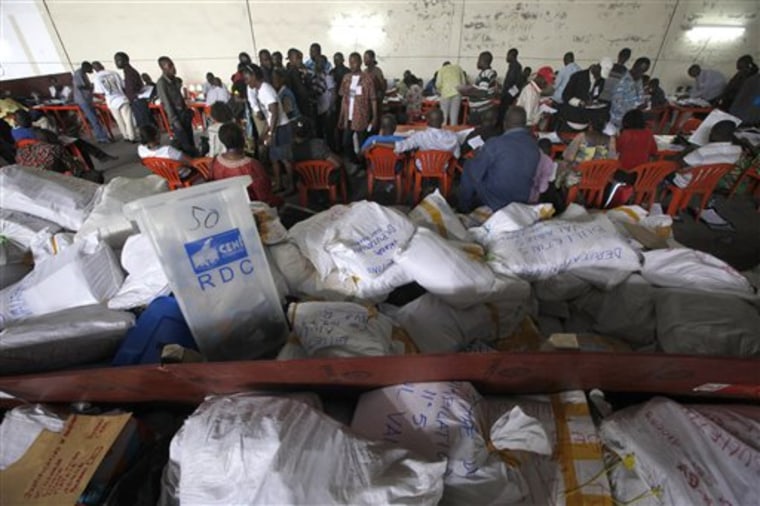Business owners started moving their stock into secure locations on Sunday and a trickle of people with suitcases waited to board boats to cross the mighty river separating this troubled nation from its neighbor to the north.
A sense of dread permeated the capital of this nation torn by war, as citizens awaited the proclamation of results Tuesday from Congo's contested presidential election.
Early results issued so far showed the country's 40-year-old president Joseph Kabila with a nearly-insurmountable lead, setting up a confrontation with the country's opposition leader, who proclaimed himself president before the vote even began.
Over the weekend, the 10 opposition candidates vying to unseat Kabila said they rejected the partial results.
The United Nations and the African Union appealed for calm. And the country's influential clergy in this nation where at least half the population is Roman Catholic made a rare public plea.
"The image that comes to mind is that of a high-speed train that is heading straight into a wall. We're under the impression that there is no one putting on the brakes," said Bishop Nicolas Djomo, the president of the Episcopal conference of Congo. "We call on all the political actors, on all the leaders to stop this train from slamming into a wall."
International observers have said that last week's election was marred by irregularities, including the late arrival of ballots which caused the vote to be extended over three consecutive days. They also noted instances of possible fraud but said there did not appear to be a systematic pattern which would have changed the outcome of the election.
The largest observation mission was organized by the clergy which dispatched a team of 30,000 election monitors who were able to be present in about one-fifth of the more than 60,000 polling stations in this nation that straddles a territory as large as Western Europe.
Djomo said that they too had witnessed irregularities but that their conclusion is that the vote overall was credible because the anomalies and instances of attempted fraud were limited.
Opposition party members heckled the bishop when he made the statement and the chief of staff of leading opposition candidate Etienne Tshisekedi said he was disappointed by the church's position.
The opposition has said in numerous statements that they consider the fraud to be widespread.
